#feeling parasocial
Text


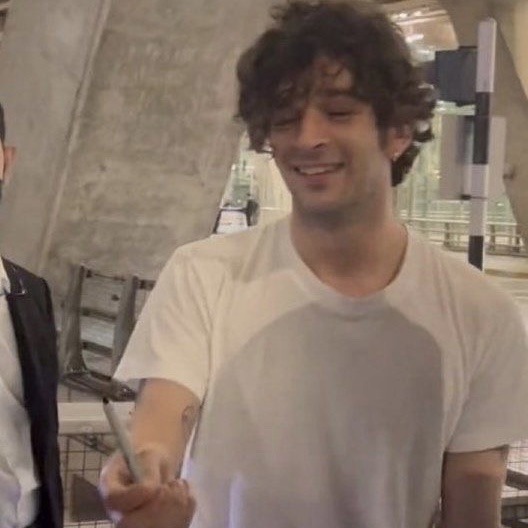



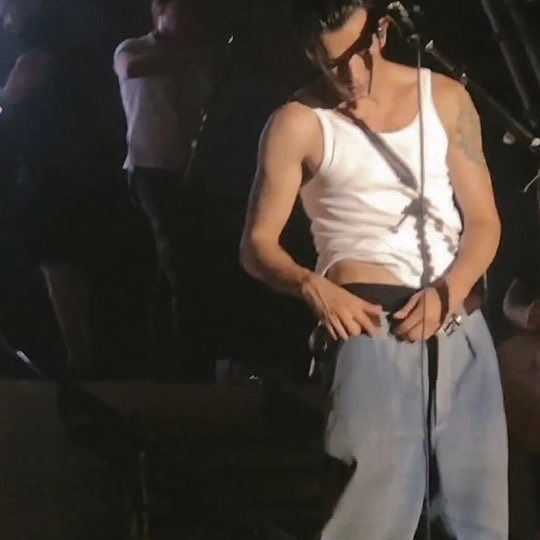

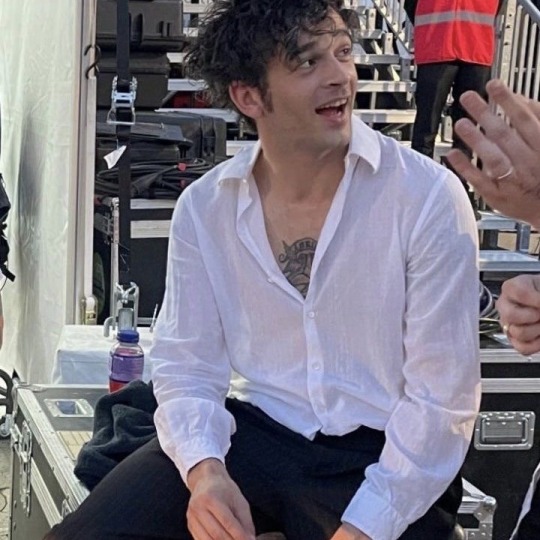
feeling parasocial // 8 of ??
113 notes
·
View notes
Text

#neil gaiman#michael sheen#the hump#first impressions#angels can’t be tempted#can they?#good omens#feeling parasocial
33 notes
·
View notes
Text

“Make me a villain if you want, you know no one on this godforsaken planet can ever love you the way that I can.”

#They won’t be able to love you either if I have anything to say about it.#yandere#irl yandere#actually yandere#yandere vent#yandere coping#yandere core#yandere aesthetic#lovesick#yandere community#obsessive love#obsessive love disorder#obsessive behavior#obsessive aesthetic#actually obsessive#parasocial#parasocial relationships#feeling parasocial#parasocial behavior#Baby Bunny
59 notes
·
View notes
Text
the parasocial problem: a comparison of leonard cohen and damien rice’s depictions of infatuation and entrapment
trigger warning for brief mentions of sexual assault terminology, no graphic descriptions (6th paragraph is signposted with tw)
romantic relationships are often the subject of musical musings. they are integral to the human experience and and musicians often use their medium to explore and reflect upon the nature of their relationships. more specifically, a common motif is that of romantic relationships breaking down, or being disrupted by another party. leonard cohen’s ‘famous blue raincoat’ and damien rice’s ‘back to her man’ both detail very similar, almost parallel circumstances from two different perspectives, and together provide an insight into parasocial relationships, dissatisfaction and the feeling of entrapment. these songs work in conjunction with one another to illustrate the cycle of the ‘parasocial problem’ wherein idolising people outside of one’s relationship works to trap all the parties involved in varying degrees of unhappiness and isolation.
‘famous blue raincoat’ by leonard cohen was released on march 17th, 1971. the song is widely considered one of the artist’s best, and is predominantly driven by storytelling. the song details a turbulent romantic relationship disturbed by another man’s interest in cohen’s wife, and reflects upon the nature of his romance. irish musician damien rice released the song ‘back to her man’ as an homage to leonard cohen on november 18th, 2016. the motivation behind the song lies in the story of rice opening for a performance of cohen’s in ireland. rice’s mother, sisters and girlfriend attended the show, and according to rice himself, they ‘were all dripping with love for [cohen]’ having watched him. the song ‘back to her man’ was then written about the idea that ‘after [the] show many women would be going back home and that their men were not, and would never quite be, leonard cohen.’ the song’s lilting, melancholy melody and humming solemn guitar echo the traits of cohen’s ‘famous blue raincoat’, and interestingly, appears to follow a parallel narrative.
‘famous blue raincoat’s narrative is slightly more elusive than that of ‘back to her man’, but it essentially follows cohen’s reflections on a love triangle between himself, a man referred to as his ‘brother’ and a woman named jane. the core theme shared between both songs is the notion of being with someone who is no longer who you expect them to be, but for differing reasons. while rice’s song is about a woman’s partner not living up to the idealised man she has developed a parasocial infatuation with, cohen sings about his ‘woman’ no longer being his own and having to reconcile with the fact that his ‘brother…my killer’ took the woman he knew and made her happier than he could himself. in the final verse, cohen thanks the other man for ‘the trouble you took from [jane’s] eyes’ and continues, ‘i thought it was there for good / so i never tried.’ this suggests that the narrator is aware that this other man may make jane happier than he can, and serves as an admission of neglect for jane, having not even tried to make her happy himself. this fits into the aforementioned theme as jane has become a happier, almost unrecognisable person in the presence of another man. similarly, rice sings ‘whatever you got, you lost in the game / of picking your own pockets for someone to blame / there may be nothing above the arc of love / depending on who you're dreaming of’ as a reference to never finding satisfaction in a relationship if another person is making you happier and has become the subject of your fantasy. both songs focalise on the concept of another man, particularly in the context of a woman’s different reactions to the men in question; one man is the subject of infatuation while the other, her partner, is a source of dissatisfaction. in cohen’s case, his ‘brother’ is the former and he is the latter, and in rice’s case, cohen is the former and the woman’s partner is the latter. these songs almost act as a foil to one another, or as different perspectives of the same story.
‘famous blue raincoat’ sums up the narrative of both cohen and rice’s stories, with the second verse: ‘you treated my woman to a flake of your life / and when she came back, she was nobody’s wife.’ in the context of ‘back to her man’, the singer here would be referring to cohen, the ‘flake of [his] life’ being the small amount of time the woman will have spent watching him perform, and she returns home to her man feeling as though she no longer belongs in a relationship with him due to her infatuation. watching cohen onstage is a particularly small ‘flake’ or insight into his life as it is performative; he is not being his authentic self onstage and audience members fall in love with the performance rather than the performer himself. similarly, in the original context, this lyric references cohen’s ‘brother’ sharing a small amount of time with jane, and it was enough to make her dissatisfied in her relationship with cohen due to it’s contrast to her relationship with the other man. labelling jane ‘nobody’s wife’ also illustrates that cohen perhaps only views her in relationship to himself; rather than being a woman in her own right, she is a wife that must belong to a husband. this perception of jane could indeed be part of her dissatisfaction with cohen, and suggests the ‘other man’ may have treated her as an individual and not as a wife that only exists within the context of her husband. cohen consistently refers to jane as ‘my woman’ or ‘his woman’ and rarely refers to her as a person in isolation. this provides a subtle insight to the nature of his relationship with her, and illustrates how jane is arguably ‘trapped’ by cohen’s definition of her and she cannot exist outside of the context of her relationships. this entrapment is caused by cohen’s perception of her, which is in turn the result of his love for her. in this sense, cohen presents love almost as an object to be possessed rather than a feeling to experience, and almost isolates jane from her own personhood.
TW FOR SA MENTION BELOW
similarly, rice ends his final verse with ‘you can’t escape when it feels like rape / but who’s raping who?’ the usage of the term ‘rape’ creates incredibly visceral imagery; here, rice could either be referring to the feeling of entrapment stemming from being with a partner who no longer fulfils your wants, or he could be likening audience members’ infatuation with cohen to a form of assault, suggesting that their parasocial attachment to him is in some ways an aggressive violation. while rice has introduced the song by stating that he found the contrast between audience members’ love for cohen and the discontentment of having to return home to their partners ‘humorous’, the framing of this contrast within the song itself says otherwise. rice asks the audience ‘who’s raping who?’ as a way of pushing them to consider if their infatuation is in fact harmful to the subject. additionally, the word ‘rape’ itself is incongruous with the soft, quiet tone and lilting melody of the rest of the song, making its use all the more impactful. it darkens the lyrical and musical tone of the rest of the song, with the chorus of people singing the phrase ‘back to her man’ that follows translating to the listener as a kind of omen or warning. the sense that either cohen or the audience are trapped is made explicit with the phrase ‘you can’t escape.’ this illustrates the trapping cycle of obsession where the subject is destined to be objectified and only desired at a surface level, and the person perpetuating this is destined to be dissatisfied in their own relationship and thereby hurt or neglect their partner as a result: therein lies the ‘parasocial problem.’ cohen also uses a particularly stark image in his song; the title of ‘my brother, my killer’ that he gives to the ‘other man’ invokes a biblical image of cain and abel, demonstrating the extent to which he feels betrayed. this usage of the extreme as a means of illustrating betrayal or violation parallels that of rice, creating another theme that runs through both songs.
END OF TW
cohen and rice sonically construct a lamenting, listless tonality in their respective songs, however rice’s guitar parts are much softer and feel much more intimate. this is amplified in the live performances of the song as he introduces it’s backstory with a friendly demeanour and the performance almost imitates the narrative as he arguably ‘treats’ the audience to a ‘flake’ of his life and potentially perpetuates an audience’s infatuation with himself. ‘famous blue raincoat’ arguably has its own intimacy as well; it is structured as a personal letter to the ‘other man’, opening with ‘i’m writing you now just to see if you’re better’ and signing off with ‘sincerely, l. cohen.’ it allows the listener into his interpersonal life, and into this conversation he’s having with the subject of his wife’s happiness and romantic preference. the closeness and trust between the artists and audience in these two songs is reflective of the very narrative they explore: in letting audience members in on personal experience, rice and cohen are risking enabling listeners' potential parasocial obsession with them. the ‘parasocial problem’ is cyclical and the songs in question serve as a wider commentary on the relationships between artists and their fans, not just the specific interpersonal instances that are being written about. the more artists discuss their feelings on parasocial relationships, the closer audience members may feel to them. this in turn can perpetuate the delusion that the artists may return their love and obsession, as fans can feed off being let into personal experiences even if the songs are partially fictionalised or dramatised.
the cyclical nature of obsession is also demonstrated by the mirrored perspectives between the two songs. while cohen is saddened by his ‘brother’ being his wife’s idealised man, he as a performer is inflicting the same fate upon the husbands of his female audience members. in his interpersonal circumstances his wife has become detached from him, but in the context of his performances, he is the one causing this detachment and lack of fulfilment in other people’s relationships. this illustrates how the ‘parasocial problem’ permeates various situations and can function in multiple fashions. both songs depict the end result of this ‘parasocial problem’, where the jilted lover’s feelings morph into acceptance and defeat. cohen’s third verse directly addresses the ‘other man’ and says ‘if you ever come by here for jane or for me / well, you enemy is sleeping, and his woman is free.’ this serves as a defeated invitation to his ‘brother’, letting him know that his ‘woman’ is free to be with him. interestingly, cohen still refers to jane as his own ‘woman’, suggesting he is still unconsciously attached to her in some ways, and that he still perceives jane in relation to himself. rice also directly addresses the ‘other man’ in his song, stating that ‘there’s power in your pocket and ships in your sea.’ the ‘power’ in question references the power dynamic between an idolised performer, in this instance cohen, and an infatuated audience member. cohen, as the performer, holds the most power over this fans as he is the one commanding the stage and whose attention is coveted by the audience. he ‘pockets’ the authority he has, as he does not reciprocate the attention and infatuation he receives. instead artists tend to ‘pocket’ and keep the adoration they receive and are aware of the swarming mass of fans and unaware of each individual fan, as is the one-sided nature of parasocial relationships. rice utilises the metaphor ‘ships in your sea’ to paint a vivid image of the large volume of audience members or ‘ships’ that put cohen on a pedestal, rather than referring to each individual person. the combination of these two lines serves to construct the image of one powerful person and their pulsing mass of devotees; even the traditional structure of a concert corroborates this image. artists tend to be elevated on a stage, looking down to their audience. while this has obvious practical benefits such as ensuring the audience can physically see the performer, it also has a symbolic meaning, showing the disparity in power and value between the performer and audience.
the ‘parasocial problem’ functions both in the smaller context of the relationships detailed in ‘back to her man’ and ‘famous blue raincoat’ and in the wider context of fan culture as a whole. artists cannot discuss the feeling of either being idolised or jilted without letting audience members into aspects of their personal experiences, but this act can then fuel fans' unreciprocated infatuation with them, which amplifies the artists feelings, and perpetuates the cycle. this is not the fault of the artists, but is the result of fan obsession and delusion. it is a cyclical, one-sided form of social entrapment. artists and fans are united in the construction of social bondage that keeps them trapped in one of three conditions; either being objectified and desired at surface level, being dissatisfied with their relationships due to their infatuation with a performer, or being neglected or hurt by their partner who is obsessed with a performer. we define ourselves often in relation to one another, as the people and environment around us cannot be ignored, and the ‘parasocial problem’ is a particularly clear example of how these relative definitions can socially trap us. ‘famous blue raincoat’ and ‘back to her man’ both invoke visceral imagery in order to depict the cruel cycle of parasocial relationships and the disappointing outcomes of infatuation. in either narrative, a woman ends up unhappily going back to her man.
i.k.b
#books and literature#film analysis#essay#literary analysis#song lyrics#song analysis#music analysis#music and lyrics#leonard cohen#damien rice#famous blue raincoat#parallels#web weaving#copyright ikb#infatuation#parasocial relationships#parasocial behavior#feeling parasocial#comparison#obsession#fan culture#entrapment#trapped#back to her man#damien rice lyrics#leonard cohen lyrics#lyrics#lyric analysis#lyric posting#long post
32 notes
·
View notes
Text
Parasocial Relationship
Of course you'd love to meet the one
Whose face you have memorized,
But what can the little fan do
When the smile doesn't meet their eyes?
The lips, the nose, the hair--
You know it all very well..!
But that person does not know you
And they are so human it's hell.
#writerscreed#poetry#poem#poets on tumblr#poetsofinstagram#spilled poetry#spilled ink#spilled words#poets#spilled thoughts#writer#parasocial relationships#parasocial behavior#feeling parasocial#hell#relationship#human behaviour#fandom#women writers#writing about life#writing about art#art#words#language#writers on tumblr#word#words for thought#people#psychological
32 notes
·
View notes
Text
hoping this is a safe space being I saw an edit earlier today of Barry and Sabrina and immediately started crying 🤭🤭 hee hee im very normal. im feeling normal. nothing weird going on here
#barry keoghan#feeling parasocial#I should have bought you flowers and held your hand should’ve gave you all my hours when I had the chance take you to every party because#all you ever wanted to do was dance now my baby’s dancing but she’s dancing with another man#😞
7 notes
·
View notes
Text
Gettiing really parasociial about someone and just. Lookiing. Liike. They're my bestiie actually (we've never spoken before)
#parasocial relationships#feeling parasocial#help#not really though#pro rq 🌈🍓#pro transharmful#rq interact#rq 🌈🍓#para safe#radqueer community
6 notes
·
View notes
Text
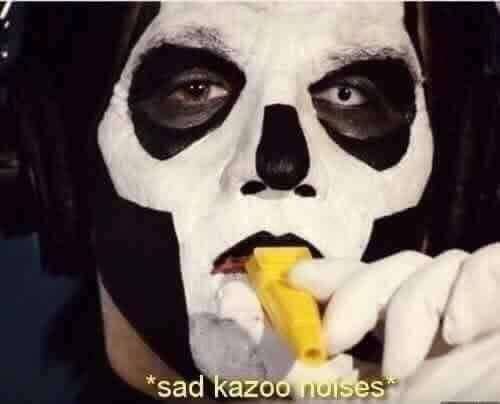
#the band ghost#shitghosting#papa copia#papa emeritus iv#shitghost#papa emeritus iii#cardinal copia#ghost#copia#call me little sunshine#mary on a cross#feeling parasocial#being borderline#that being said#that bulge tho
91 notes
·
View notes
Text
I'm really really sorry but I rly crazy because everytime Q where's an England shirt on impractical Jokers I feel in my heart he's doing it for me, I feel seen and I think he is thinking of me

36 notes
·
View notes
Text
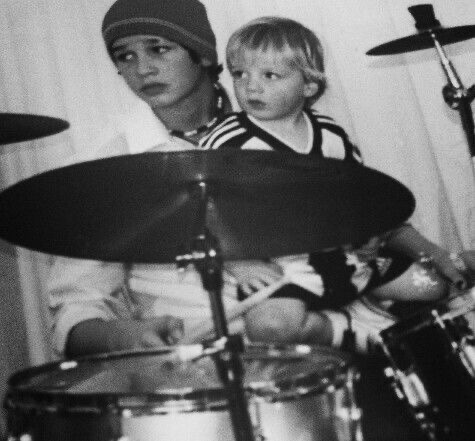
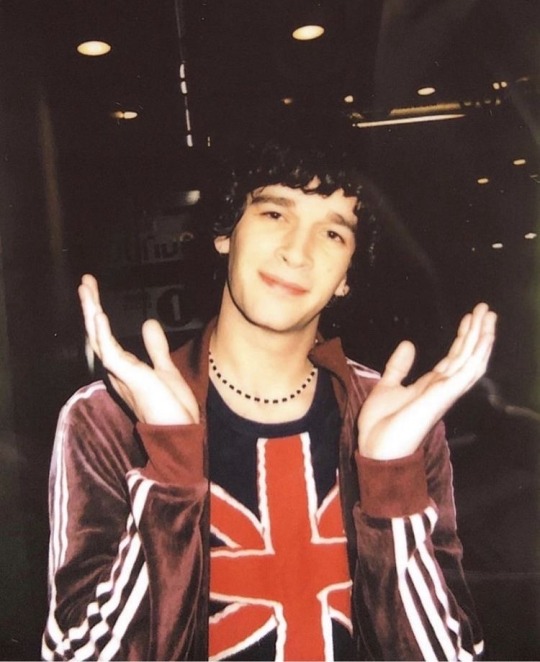
very emotional tonight but his necklace is like the one he had as a kid and now i’m crying
22 notes
·
View notes
Text
pants off as soon as matty’s shirt came off 🤷🏻♀️
#he’s so fucking fine like i don’t think any of yall get it#jk you do#i need him on top of me as he wears that tank top#feeling parasocial#need to kiss his skin#matty healy#the 1975
29 notes
·
View notes
Text
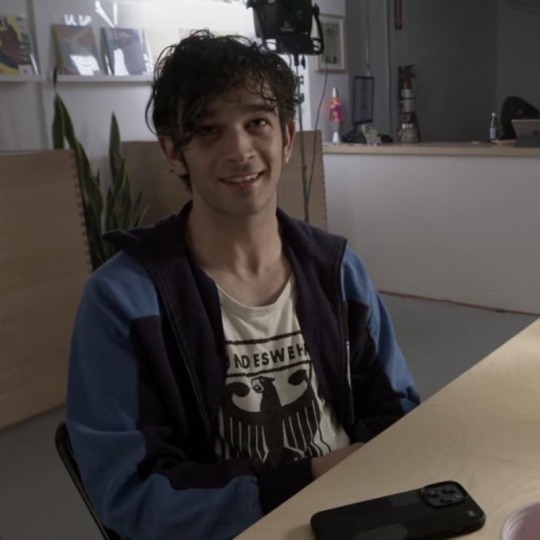

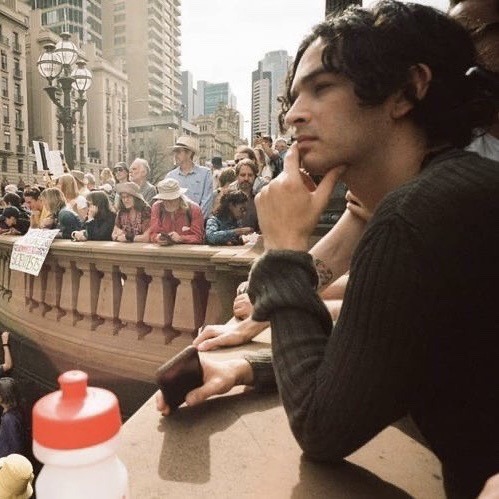
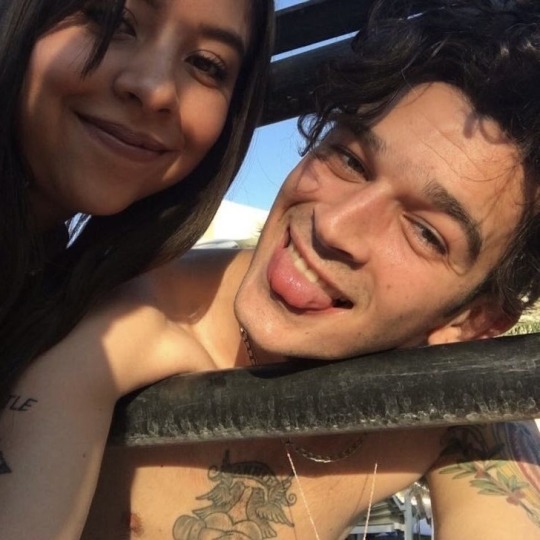


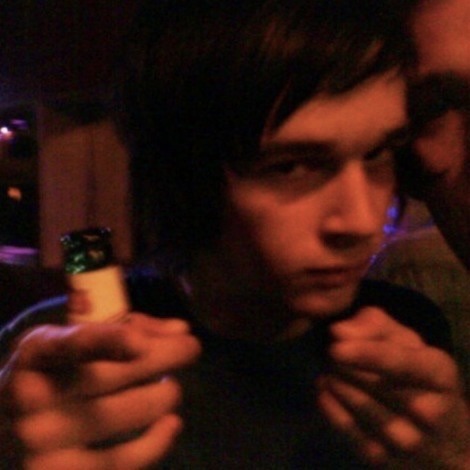


feeling parasocial // 10 of ??
#matty healy#feeling parasocial#10 of ??#the fact that there are so many photos that fit this vibe is insane?
70 notes
·
View notes
Text
Good morning to everyone except the 2008-2009 gossip “journalists” that wondered aloud (in print) how Georgia then-Moffet was going to ‘keep her man’ David Tennant.
10 notes
·
View notes
Note
You don't have to worry about answering this or hearing from me again; I value the truth too much. I wish you would of trusted me the way I trusted you.
streaming one last live stream tomorrow to discuss parasocial relationships as well as my own personal experience with this topic during my short time on this particular streaming platform. join me for an anonymous story time. I promised a last tumblr live stream so … let’s talk candidly about why I’m leaving. let’s debate openly the point at which too much “support” for a content creator crosses boundaries. Let’s authentically discuss my screenshots of an anonymous interaction that I felt went too far, and how creators can and do maneuver maintaining proper distance from audiences.
Join me for a final bow out:
MONDAY//OCTOBER 9TH//10am EST




#manic pixie dream girl#parasocialism#girlblogging#parasocial behavior#manic pixie nightmare#parasocial relationships#manic pixie crap show#live streaming#open discussion#tumblr live#personal#feeling parasocial#not to be parasocial#parasocial moment#pretty privilege#female rage#female manipulator#female hysteria#smile for me#turn off tumblr live tuesday
13 notes
·
View notes
Text
parasocial
i see you on the screen
you shine and glimmer
big, beautiful, perfect
you're bigger than my whole life
the odds are not in my favor
you don't even know i exist
but i suppose it's the way it is
i have given my heart
and if it breaks
i'll be happy cause yours is safe
with me
#poetry#spilled poetry#love poem#poems on tumblr#falling apart#poem#freedom#love#love poetry#kinda depressing#parasocial relationships#parasocial behavior#parasocial moment#feeling parasocial
2 notes
·
View notes
Text
I am developing a parasocial relationship with the human representation of a 1940s WW2 American Battleship coded to be an anime girl in a gacha game.
Never thought I’d ever utter these words in this order.
#don’t worry im still VERY into jojo’s#azur lane#Azur lane new jersey#new jersey#lol i tagged the fucking state#parasocial moment#feeling parasocial
7 notes
·
View notes